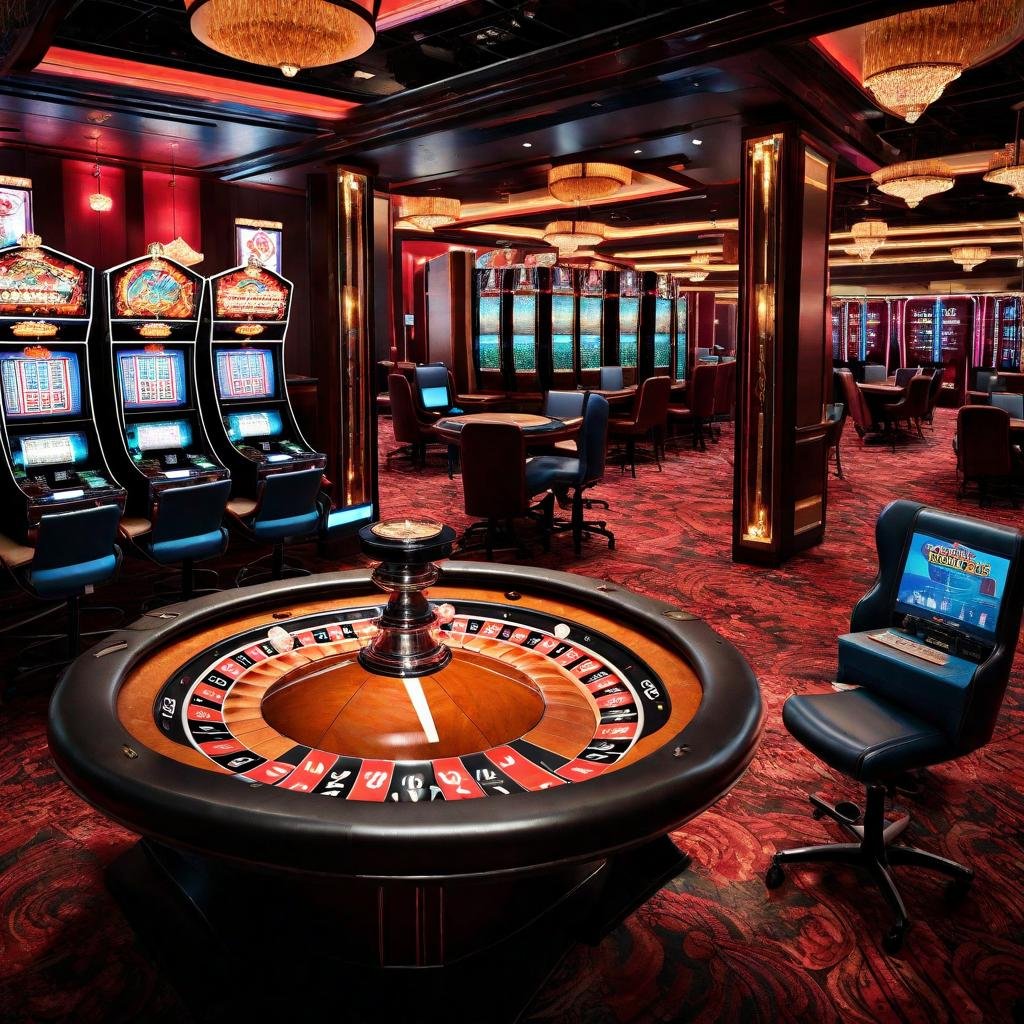
In the world of gambling, where chance and strategy intersect, a unique tapestry of beliefs manifests—one that intertwines luck, fate, and the enigmatic nature of casino games. Casinos, bustling with excitement and anticipation, are not just spaces for placing bets; they are also arenas in which superstitions thrive. From the novice player to the seasoned gambler, these mysterious practices often shape how individuals approach the games they play, holding the belief that their actions can influence the outcome in ways that go beyond mere probability.
As players gather around roulette wheels, blackjack tables, and slot machines, the atmosphere is thick with stories of lucky charms, rituals, and codified behavior that defy logic yet provide a sense of comfort. nhà cái 8kbet It could be the case that it’s wearing a specific outfit, following a particular sequence of bets, or even avoiding certain numbers, the attachment to various superstitions reflects a deep-rooted desire to master the uncontrollable. This article delves into the captivating world of casino game superstitions, examining the beliefs that both entertain and mystify those who dare to play.
Historical Roots of Superstitions
Gambling games have long been interwoven with an host of superstitions that can be traced to ancient societies. The origins of these beliefs can be associated to humanity’s fundamental wish to influence the random outcomes connected with luck and chance. In early civilizations, games of uncertainty were often linked to religious practices. Players would call upon blessings or ask for favor from gods, believing that their actions could influence the results in their advantage. This groundwork laid the groundwork for the multitude of superstitions that spread as gambling evolved over time.
During the medieval age, betting became a common pastime across European nations, and with it, a diverse tapestry of superstitions appeared. Players adopted numerous rituals and charms, believing they could change the consequences of games. The significance of digits, in particular, started to show in superstitions pertaining to card games and dice. The number seven was often considered auspicious, while different numbers carried negative connotations. These notions mirrored the societal contexts of the time, adapting as they moved through generations and transformed to emerging gaming environments.
As gaming establishments emerged in the seventeenth century, particularly in the Italian peninsula and the French nation, the atmosphere surrounding betting became saturated in enigma. The growing openness of casino activities allowed for the spread and variation of superstitions among players. Concepts like fortunate charms, special seating positions, and rituals gained prevalence, creating a unique culture within gambling establishments. As these practices continued to thrive, they became essential to the essence of gambling activities, illustrating how history and culture shape the notions that influence how participants interact with chance.
Common Gambling Superstitions
Beliefs surrounding casino activities are abundant and diverse, reflecting the dreams and fears of players as they engage in random games. One of the most prevalent views is that certain numbers bring luck or misfortune. For example, the digit 7 is often seen as a lucky digit, frequently sought after by gamblers looking for a positive result. Conversely, the digit thirteen is routinely considered cursed, leading many gamblers to steer clear of it during their gaming sessions.
A common belief relates to rituals that players believe can influence their odds. Whether blowing gently on the dice before a roll, using a particular hand to place a wager, or even wearing particular items of attire, many people feel that these actions can sway luck in their favor. These practices offer a sense of control in an otherwise unpredictable environment, reinforcing the idea that fortune can be manufactured through individual convictions and habits.
Lastly, the ambiance and atmosphere of the casino itself contributes to superstition. Many gamblers suggest that the presence of specific icons, such as four-leaf clovers or fortunate coins, can enhance their odds of winning. Additionally, players might adhere to the belief that winning streaks can be halted by mundane occurrences, such as someone passing by or a spill at the table. The shared atmosphere in a casino can amplify these beliefs, creating a communal culture of superstitions that transcends single experiences.
Impact of Superstitions on Players
Superstitions play a significant role in the mindset of gamblers, often influencing their actions and choices. Many gamblers think that luck can be manipulated through different rituals, such as donning a talisman, selecting specific colors, or avoiding certain numbers. This dependence on superstitions can create a feeling of authority in an environment that is inherently unpredictable. Players often feel more self-assured and involved when they feel that their actions could sway the outcome of a game in their advantage.
The influence of these superstitions extends past individual players, affecting the overall atmosphere within the casino. For instance, a player who holds the belief in the luck of a certain slot machine might draw a crowd, as others are fascinated by their apparent luck. This collective belief can amplify excitement and create a dynamic environment, leading to an engaging experience even for those who may not necessarily be superstitious. The buzz around certain games can lead to increased participation and longer playing sessions, supporting the casino’s lively social scene.
In some cases, superstitions can lead to harmful effects for players. Depending too heavily on rituals can result in bad gambling decisions, as some may overlook basic strategies in favor of baseless beliefs. Additionally, the pressure to perform rituals may heighten anxiety and stress levels, diminishing from the pleasure of the experience. Ultimately, while superstitions can enhance the thrill of playing casino games, they can also lead to poor choices that overshadow the fun and amusement intended in the casino experience.